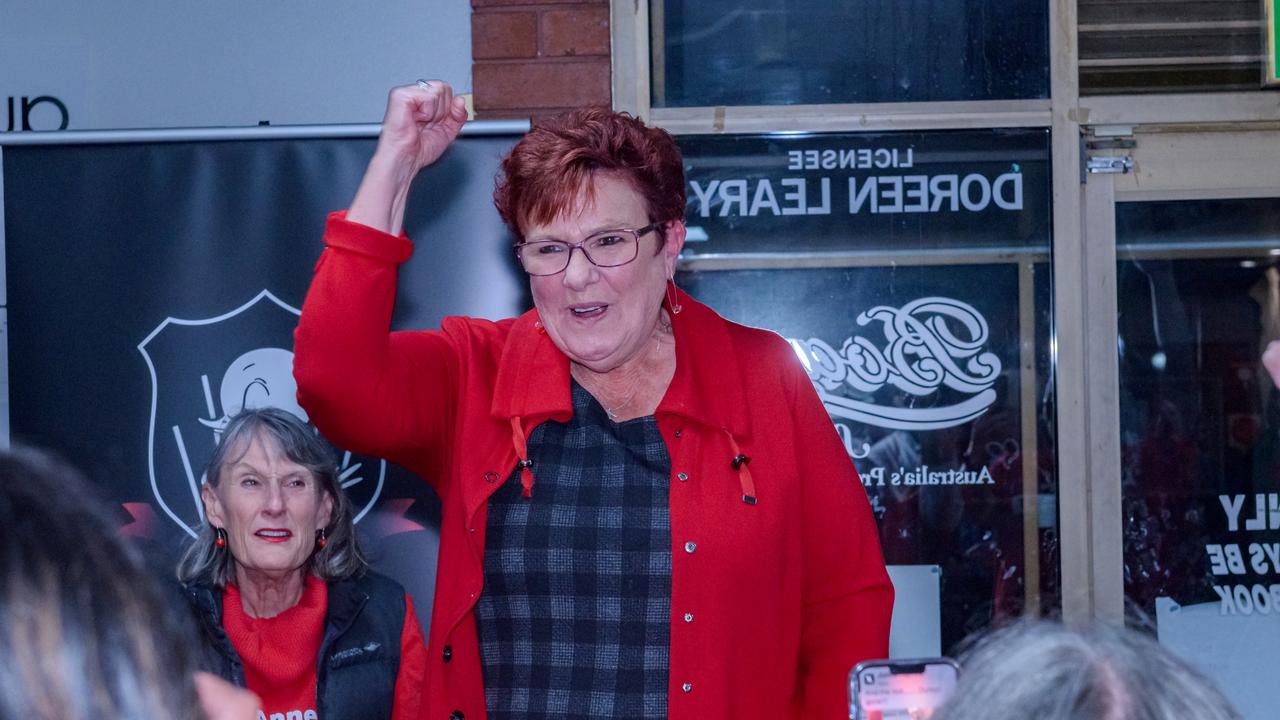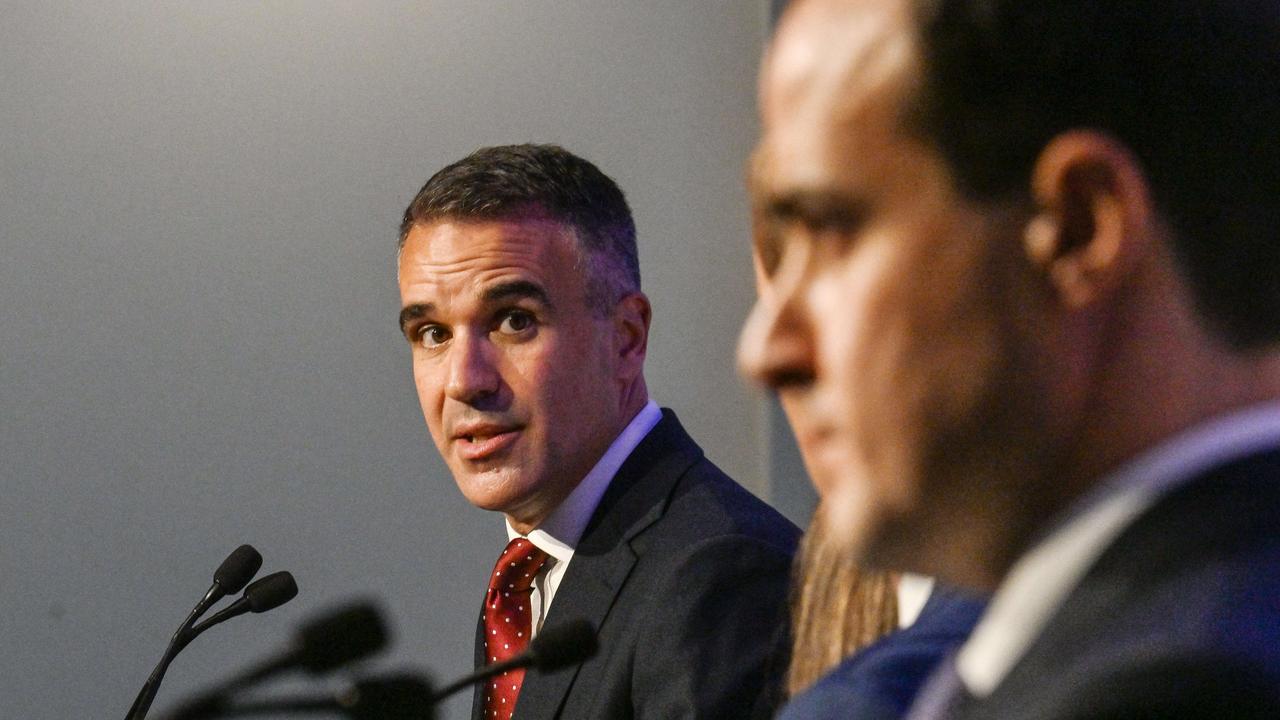Voters backing Coalition ahead of Labor to manage cost-of-living crisis
The Coalition has moved ahead of Labor for the first time since the 2022 election on which voters believe is the best party to manage the cost-of-living crisis, despite recent falls in inflation.

The Coalition has moved ahead of Labor for the first time since the 2022 election on which is the best party to manage the cost-of-living crisis, despite Anthony Albanese and Jim Chalmers highlighting recent falls in inflation.
A poll of 1417 people conducted between October 31 and November 4 reveals 72 per cent of voters cited cost-of-living pressures unprompted as their top issue ahead of housing affordability, crime and healthcare.
The SEC Newgate Mood of the Nation survey shows that since Labor’s lead as the best party to manage cost-of-living pressures peaked at 43 to 22 per cent in September 2022, Peter Dutton’s opposition has moved ahead months out from the federal election.
Labor, which is traditionally the preferred party for voters on cost-of-living issues, has plunged to 29 per cent, behind the Coalition on 30 per cent; 22 per cent are picking neither and 18 per cent are not expressing a view.
Grocery prices, electricity bills and insurance premiums remain the three specific cost-of-living concerns ahead of petrol prices, water bills, gas bills, mortgage repayments and road tolls.
After recent falls in inflation, optimism about the economy has improved, with 35 per cent of voters now confident consumer prices will decrease over the next 12 months.
With Albanese government hopes of a pre-election rate cut looking shaky, the poll found that 23 per cent of voters would be more likely to vote for Labor if interest rates were cut, 11 per cent less likely and for 66 per cent it would have no impact.
SEC Newgate Research partner David Stolper said political parties would be “intensely tracking public attitudes on inflation and cost of living – particularly after Donald Trump’s shock comeback win on the back of high cost-of-living concerns”.
“There are some promising green shoots for the Albanese government on economic confidence, but our research shows that people are still hurting and have continuing high concerns about grocery and energy prices,” Mr Stolper said.
On climate change and energy, the poll showed 56 per cent of voters supported the Albanese government’s 2030 target to reduce emissions by 43 per cent, with 53 per cent endorsing Labor’s net zero by 2050 goal.
Asked about Mr Dutton’s plan to repeal Australia’s ban on nuclear, 42 per cent said the prohibition should remain in place compared with 33 per cent in favour and 25 per cent undecided.
Support for nuclear power generation was stable at 38 per cent, and support for new coal-fired power plants lifted to 33 per cent.
Since September, there has been a fall from 43 to 37 per cent in the number of Australians who believe social cohesion in the country is at good or excellent levels. Only 39 per cent of voters feel the country is heading in the right direction, with Victoria reporting the worst result.
After former Labor premier Steven Miles weaponised abortion in his failed Queensland election campaign, prompting warnings from Mr Dutton for Coalition MPs to not make it a major issue, the poll showed 64 per cent of Australians, including 72 per cent of women, would “vote against any political candidate proposing new restrictions to abortion rights and access”.
Comparing government performances, 32 per cent of voters believe the Albanese government is doing a good job, which is on par with the Victorian Labor government. The best performers are the South Australian, West Australian and NSW governments led by Peter Malinauskas, Roger Cook and Chris Minns.




To join the conversation, please log in. Don't have an account? Register
Join the conversation, you are commenting as Logout